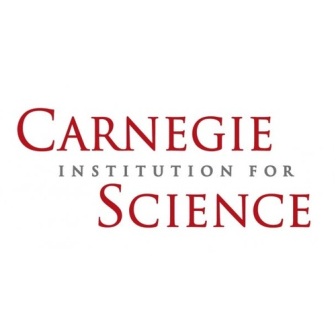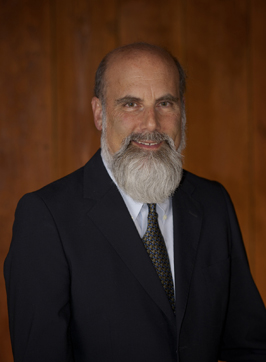 Washington, D.C.—By unanimous vote of the Carnegie Board of Trustees, Dr. Matthew P. Scott has been appointed the 10th president of the Carnegie Institution for Science. Dr. Scott is Professor of Developmental Biology, Genetics, Bioengineering, and Biology at the Stanford University School of Medicine and will succeed the current President, Dr. Richard A. Meserve, on September 1, 2014.
Washington, D.C.—By unanimous vote of the Carnegie Board of Trustees, Dr. Matthew P. Scott has been appointed the 10th president of the Carnegie Institution for Science. Dr. Scott is Professor of Developmental Biology, Genetics, Bioengineering, and Biology at the Stanford University School of Medicine and will succeed the current President, Dr. Richard A. Meserve, on September 1, 2014.
“This is an extraordinary time for the Carnegie Institution for Science,” said Co-Chairs Suzanne Nora Johnson and Stephen Fodor. “The scientific departments are flourishing with strong support from Trustees and a well performing endowment. The Trustees and Departmental Directors all believe Dr. Scott captures the independent spirit of Carnegie Science’s long tradition of leading science at the frontiers. We are enthusiastic about his leadership.”
 Dr. Scott did his undergraduate and graduate work at M.I.T., with Prof. Mary Lou Pardue as his Ph.D. thesis advisor. He moved to Indiana University for his postdoctoral work as a Helen Hay Whitney fellow with Profs. Thomas Kaufman and Barry Polisky. After setting up his own lab at the University of Colorado, Boulder, Dr. Scott came to Stanford in 1990 to join the newly formed Department of Developmental Biology, and the Department of Genetics. His research focused on genes that control development, and how damage to these genes leads to birth defects, cancer, and neurodegeneration. He discovered the “homeobox,”an evolutionarily conserved component of many genes that control development. His lab group discovered the genetic basis of the most common human cancer, basal cell carcinoma, and of the most common childhood malignant brain tumor, medulloblastoma. He served as Associate Chair and Chair of the Department of Developmental Biology for a total of six years. He chaired the multidisciplinary Bio-X program at Stanford from 2001-2007. He is presently Co-chair of the Center for Children’s Brain Tumors. He has been recognized by election to the American Academy of Arts and Sciences, the National Academy of Sciences, and the Institute of Medicine, and served as President of the Society for Developmental Biology. His awards include the Passano Award (1990), the Conklin Medal of the Society for Developmental Biology (2004), and the Pasarow Award in Cancer Research (2013).
Dr. Scott did his undergraduate and graduate work at M.I.T., with Prof. Mary Lou Pardue as his Ph.D. thesis advisor. He moved to Indiana University for his postdoctoral work as a Helen Hay Whitney fellow with Profs. Thomas Kaufman and Barry Polisky. After setting up his own lab at the University of Colorado, Boulder, Dr. Scott came to Stanford in 1990 to join the newly formed Department of Developmental Biology, and the Department of Genetics. His research focused on genes that control development, and how damage to these genes leads to birth defects, cancer, and neurodegeneration. He discovered the “homeobox,”an evolutionarily conserved component of many genes that control development. His lab group discovered the genetic basis of the most common human cancer, basal cell carcinoma, and of the most common childhood malignant brain tumor, medulloblastoma. He served as Associate Chair and Chair of the Department of Developmental Biology for a total of six years. He chaired the multidisciplinary Bio-X program at Stanford from 2001-2007. He is presently Co-chair of the Center for Children’s Brain Tumors. He has been recognized by election to the American Academy of Arts and Sciences, the National Academy of Sciences, and the Institute of Medicine, and served as President of the Society for Developmental Biology. His awards include the Passano Award (1990), the Conklin Medal of the Society for Developmental Biology (2004), and the Pasarow Award in Cancer Research (2013).
Remarking on his new position, Dr. Scott said: “Carnegie, founded in 1902 by a visionary entrepreneur, supports scientists engaged in pursuing an extraordinary range of nature’s greatest mysteries, from the origins and evolution of the universe to the formation and dynamics of the Earth, the evolution of life, and the fluid ecosystems that fall increasingly under human influence. Carnegie scientists’ investigations of deep history inform our future. To join them in these explorations is an exciting prospect. In undertaking this new job, I will benefit greatly from all that Stanford has taught me in nearly 24 years here. I am deeply grateful to the colleagues, students, and postdocs who have made my research and teaching experiences so rewarding. Carnegie enterprises prosper due to highly collaborative communities of skilled and creative people, a style of research that underlies many of Stanford’s successes as well. On the Stanford campus are two Carnegie departments, and my wife Margaret Fuller’s stem cell research laboratory, so I look forward to ongoing deep ties between Carnegie and this wonderful university. I am honored to have been given the opportunity to join Carnegie and I look forward to extending a great heritage of its explorations.”
Dr. Scott will assume his new post from Dr. Richard Meserve, who has been the President of Carnegie Science since 2003 and is a world renowned expert on energy policy and former Chairman of the Nuclear Regulatory Commission. President Meserve stated that “I am very pleased that such an accomplished individual has been found to serve as the next Carnegie president. He is a wonderful selection to continue the remarkable record of scientific accomplishment that has been achieved by the institution.”
Board Co-Chairs, Fodor and Nora Johnson remarked that “Dr. Meserve leaves over a decade’s long legacy of dedication to outstanding scientific research and policy.”
The Carnegie Institution for Science ( carnegiescience.edu ) is a private, nonprofit organization headquartered in Washington, D.C., with six research departments throughout the U.S. Since its founding in 1902, the Carnegie Institution has been a pioneering force in basic scientific research. Carnegie scientists are leaders in plant biology, developmental biology, astronomy, materials science, global ecology, and Earth and planetary science.
